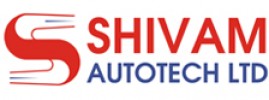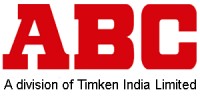Filter interviews by
Bharat Seats Interview Questions and Answers
24 Interview questions
VSA audit evaluates the effectiveness of a company's Value Stream Analysis in optimizing processes and reducing waste.
VSA stands for Value Stream Analysis, focusing on identifying and eliminating waste in processes.
The audit assesses current processes against best practices to enhance efficiency.
It involves mapping out the value stream to visualize steps and identify bottlenecks.
For example, a manufacturing compan...
IATF clauses outline requirements for quality management in automotive sectors, focusing on continuous improvement and customer satisfaction.
Clause 4: Context of the Organization - Understanding internal and external issues affecting quality management.
Clause 5: Leadership - Emphasizes the role of top management in promoting quality and customer focus.
Clause 6: Planning - Involves risk management and setting quali...
I have worked with leading engineering firms, focusing on mechanical design, product development, and project management.
Company A: Developed innovative HVAC systems, improving energy efficiency by 20%.
Company B: Led a team in designing automotive components, reducing production costs by 15%.
Company C: Worked on medical device engineering, ensuring compliance with FDA regulations.
I am a Senior Mechanical Engineer with expertise in design, analysis, and project management in various engineering sectors.
Lead design projects for innovative mechanical systems, such as a new HVAC system that improved energy efficiency by 20%.
Conduct finite element analysis (FEA) to ensure structural integrity of components, reducing failure rates in prototypes.
Collaborate with cross-functional teams to streamli...
A four stroke engine is an internal combustion engine that completes four separate strokes (intake, compression, power, exhaust) in two crankshaft revolutions.
Intake stroke: Fuel-air mixture is drawn into the cylinder.
Compression stroke: Mixture is compressed by the piston.
Power stroke: Mixture is ignited, expanding and pushing the piston down.
Exhaust stroke: Exhaust gases are expelled from the cylinder.
A petrol engine is an internal combustion engine that runs on petrol fuel.
Petrol engines use spark plugs to ignite the fuel-air mixture
They have higher power output compared to diesel engines
Examples include inline-four, V6, and V8 petrol engines
Yes, it is possible to punch a hole with a diameter of 3mm in a sheet with a thickness of 4mm using a press tool.
The hole diameter should be smaller than the sheet thickness to ensure successful punching.
Consider the material of the sheet and the type of press tool being used for punching.
Ensure proper alignment and clearance for the punching process to avoid any issues.
Example: Using a hydraulic press with a shar...
Yes, a sheet thickness of 4mm can be punched.
The punching process involves using a tool to create a hole or cut in the material.
The ability to punch a 4mm thick sheet will depend on the type of punching machine and the material being punched.
For thicker sheets, a more powerful punching machine may be required.
Examples of punching machines include turret punch presses and hydraulic punch presses.
Pitch of a micrometer refers to the distance moved by the spindle per revolution of the thimble.
Pitch is typically engraved on the frame of the micrometer as the distance moved by the spindle for one complete revolution of the thimble.
It is used to calculate the measurement resolution of the micrometer.
For example, if the pitch is 0.5mm, then each division on the thimble corresponds to 0.01mm of movement of the sp...
Performance is dependent on various factors, not just availability.
Performance is influenced by factors such as skill level, experience, resources, and support.
Availability is just one aspect that can impact performance, but it is not the sole determinant.
For example, even if availability is high, performance may still be low if other factors are not optimal.
Bharat Seats Interview Experiences
22 interviews found
(2 Questions)
- Q1. What is pitch of micrometer.
- Ans.
Pitch of a micrometer refers to the distance moved by the spindle per revolution of the thimble.
Pitch is typically engraved on the frame of the micrometer as the distance moved by the spindle for one complete revolution of the thimble.
It is used to calculate the measurement resolution of the micrometer.
For example, if the pitch is 0.5mm, then each division on the thimble corresponds to 0.01mm of movement of the spindle...
- Q2. If sheet thickness 4 MM and hole dia 3 MM can you punch on press tool
- Ans.
Yes, it is possible to punch a hole with a diameter of 3mm in a sheet with a thickness of 4mm using a press tool.
The hole diameter should be smaller than the sheet thickness to ensure successful punching.
Consider the material of the sheet and the type of press tool being used for punching.
Ensure proper alignment and clearance for the punching process to avoid any issues.
Example: Using a hydraulic press with a sharp pun...
(2 Questions)
- Q1. What is pitch of micrometer
- Ans.
Pitch of a micrometer refers to the distance moved by the spindle per revolution of the thimble.
Pitch is typically expressed in millimeters or inches per revolution.
It is used to calculate the measurement resolution of the micrometer.
For example, a micrometer with a pitch of 0.5mm will move 0.5mm for each full rotation of the thimble.
- Q2. If sheet thickness 4 MM can punch
- Ans.
Yes, a sheet thickness of 4mm can be punched.
The punching process involves using a tool to create a hole or cut in the material.
The ability to punch a 4mm thick sheet will depend on the type of punching machine and the material being punched.
For thicker sheets, a more powerful punching machine may be required.
Examples of punching machines include turret punch presses and hydraulic punch presses.
Interview Preparation Tips
I appeared for an interview in May 2024.
(5 Questions)
- Q1. Breakdown maintenance
- Q2. Skoda assembly automation
- Q3. Plc breakdown panel
- Q4. Lift breakdown maintenance
- Q5. DG operate and panel
I applied via Campus Placement and was interviewed in Mar 2024. There was 1 interview round.
(4 Questions)
- Q1. Course released question... What is your favorite subject and tell about tropics of the subject?
- Q2. What is governor, valve, welding types?
- Ans.
Governor, valve, and welding types are important components in engineering.
Governor: device used to control the speed of an engine or machine
Valve: device used to control the flow of fluids or gases
Welding types: various methods of joining metals together, such as MIG, TIG, and arc welding
- Q3. What is petrol engine?
- Ans.
A petrol engine is an internal combustion engine that runs on petrol fuel.
Petrol engines use spark plugs to ignite the fuel-air mixture
They have higher power output compared to diesel engines
Examples include inline-four, V6, and V8 petrol engines
- Q4. What is four stroke engine?
- Ans.
A four stroke engine is an internal combustion engine that completes four separate strokes (intake, compression, power, exhaust) in two crankshaft revolutions.
Intake stroke: Fuel-air mixture is drawn into the cylinder.
Compression stroke: Mixture is compressed by the piston.
Power stroke: Mixture is ignited, expanding and pushing the piston down.
Exhaust stroke: Exhaust gases are expelled from the cylinder.
Interview Preparation Tips
- Capital Goods
(1 Question)
- Q1. Process & based on work experience.
- Q1. What are the details about your family, and what is your father's profession?
- Q2. No any quri
I applied via Naukri.com and was interviewed in Aug 2023. There was 1 interview round.
(10 Questions)
- Q1. If plan vs actual is 97% then what is your performance rate
- Ans.
Performance rate is 97%
Performance rate = 100% - (100% - 97%) = 3%
Performance rate = 3%
This means the actual performance is 3% below the planned performance
- Q2. How to control your inhouse rework
- Ans.
Implement strict quality control measures, identify root causes of rework, provide training to employees, and continuously monitor and improve processes.
Implement strict quality control measures to catch errors early on
Identify root causes of rework to address underlying issues
Provide training to employees to improve skills and reduce errors
Continuously monitor and improve processes to prevent rework
Utilize data analys...
- Q3. How you improve your productivity rate
- Ans.
I improve my productivity rate by setting clear goals, prioritizing tasks, utilizing time management techniques, and continuously seeking ways to streamline processes.
Setting clear goals to stay focused and motivated
Prioritizing tasks based on importance and deadlines
Utilizing time management techniques such as the Pomodoro technique or Eisenhower matrix
Seeking ways to streamline processes through automation or optimiz...
- Q4. How you decrease labor cost
- Ans.
Labor cost can be decreased by implementing automation, optimizing processes, outsourcing non-core tasks, and cross-training employees.
Implement automation to reduce manual labor requirements
Optimize processes to increase efficiency and reduce labor hours
Outsource non-core tasks to lower cost regions or specialized vendors
Cross-train employees to handle multiple roles and tasks effectively
- Q5. How you reduce change over frequency
- Ans.
To reduce change over frequency, implement standardized work procedures, improve equipment reliability, optimize scheduling, and minimize setup times.
Implement standardized work procedures to ensure consistency and efficiency during changeovers
Improve equipment reliability to reduce downtime and increase productivity
Optimize scheduling to minimize changeover frequency and maximize production time
Minimize setup times by...
- Q6. What is your DWM
- Ans.
DWM stands for Daily Work Management, which involves planning, organizing, and executing daily tasks to ensure efficient production operations.
DWM involves creating daily schedules for production activities
It includes assigning tasks to team members and monitoring progress
Regularly updating and adjusting plans based on production needs
Examples: setting up daily production targets, coordinating with different department...
- Q7. How to you improve your team
- Ans.
I focus on fostering collaboration, continuous learning, and clear communication to enhance team performance and morale.
Encourage open communication: Regular team meetings to discuss challenges and share ideas.
Promote skill development: Organize training sessions or workshops on new technologies relevant to our projects.
Implement feedback loops: Conduct regular performance reviews and gather feedback to identify areas ...
- Q8. If availabilty is x then what is your performance
- Ans.
Performance is dependent on various factors, not just availability.
Performance is influenced by factors such as skill level, experience, resources, and support.
Availability is just one aspect that can impact performance, but it is not the sole determinant.
For example, even if availability is high, performance may still be low if other factors are not optimal.
- Q9. How to resolve customer complaint
- Ans.
Listen to the complaint, empathize with the customer, investigate the issue, offer a solution, follow up to ensure satisfaction.
Listen actively to the customer's complaint without interrupting
Empathize with the customer and acknowledge their frustration
Investigate the issue to understand the root cause
Offer a solution that addresses the customer's concerns
Follow up with the customer to ensure their satisfaction with th...
- Q10. How to manage if abnormal condition will happened
- Ans.
To manage abnormal conditions, prioritize safety, assess the situation, take corrective actions, and communicate effectively.
Prioritize safety of personnel and equipment
Assess the situation to understand the root cause
Take corrective actions promptly to mitigate the abnormal condition
Communicate effectively with team members and stakeholders
Implement preventive measures to avoid recurrence
Interview Preparation Tips
- About OEE
Skills evaluated in this interview
I applied via Campus Placement
(2 Questions)
- Q1. Name of the tropics of your subject?
- Q2. Question of theory of machine subject
(1 Question)
- Q1. About Quality management System like -IATF standard ,VSA , CoreTools etc
(1 Question)
- Q1. Salary discussion

(1 Question)
- Q1. Production of experience and good report present invention senior manager Hardworking and multitaskers team handling
(1 Question)
- Q1. Document total maintain attendance for the company like yours
I applied via Approached by Company and was interviewed before Dec 2023. There were 2 interview rounds.
(2 Questions)
- Q1. Tell me about your current profile
- Ans.
I am a Senior Mechanical Engineer with expertise in design, analysis, and project management in various engineering sectors.
Lead design projects for innovative mechanical systems, such as a new HVAC system that improved energy efficiency by 20%.
Conduct finite element analysis (FEA) to ensure structural integrity of components, reducing failure rates in prototypes.
Collaborate with cross-functional teams to streamline pr...
- Q2. Which companies have you worked in past
- Ans.
I have worked with leading engineering firms, focusing on mechanical design, product development, and project management.
Company A: Developed innovative HVAC systems, improving energy efficiency by 20%.
Company B: Led a team in designing automotive components, reducing production costs by 15%.
Company C: Worked on medical device engineering, ensuring compliance with FDA regulations.
(2 Questions)
- Q1. Explain all clause of IATF which are auditable.
- Ans.
IATF clauses outline requirements for quality management in automotive sectors, focusing on continuous improvement and customer satisfaction.
Clause 4: Context of the Organization - Understanding internal and external issues affecting quality management.
Clause 5: Leadership - Emphasizes the role of top management in promoting quality and customer focus.
Clause 6: Planning - Involves risk management and setting quality ob...
- Q2. Explain VSA audit ?
- Ans.
VSA audit evaluates the effectiveness of a company's Value Stream Analysis in optimizing processes and reducing waste.
VSA stands for Value Stream Analysis, focusing on identifying and eliminating waste in processes.
The audit assesses current processes against best practices to enhance efficiency.
It involves mapping out the value stream to visualize steps and identify bottlenecks.
For example, a manufacturing company may...
Interview Preparation Tips
- IATF
- VSAT
- VSAM
- Internal Audit
- MRM
- KPI Monitoring
- EHS
- OHAS
- SPC
- Apqp
Top trending discussions






Bharat Seats Interview FAQs
The duration of Bharat Seats interview process can vary, but typically it takes about less than 2 weeks to complete.
Tell us how to improve this page.
Bharat Seats Interviews By Designations
- Bharat Seats Quality Engineer Interview Questions
- Bharat Seats QMS Engineer Interview Questions
- Bharat Seats Deputy Manager Interview Questions
- Bharat Seats Senior Engineer Mechanical Interview Questions
- Bharat Seats Store Executive Interview Questions
- Bharat Seats Manager Interview Questions
- Bharat Seats Production Engineer Interview Questions
- Bharat Seats Junior Engineer Interview Questions
- Show more
Interview Questions for Popular Designations
- Senior Executive Interview Questions
- Business Analyst Interview Questions
- Sales Executive Interview Questions
- Consultant Interview Questions
- Graduate Engineer Trainee (Get) Interview Questions
- System Engineer Interview Questions
- Manager Interview Questions
- Assistant Manager Interview Questions
- Show more
Overall Interview Experience Rating
based on 41 interview experiences
Difficulty level
Duration
Interview Questions from Similar Companies
Bharat Seats Reviews and Ratings
based on 377 reviews
Rating in categories
|
Senior Engineer
108
salaries
| ₹3.8 L/yr - ₹8.3 L/yr |
|
Assistant Manager
102
salaries
| ₹5.4 L/yr - ₹12 L/yr |
|
Junior Engineer
60
salaries
| ₹2.2 L/yr - ₹3.5 L/yr |
|
Deputy Manager
51
salaries
| ₹10 L/yr - ₹15.6 L/yr |
|
Engineer
46
salaries
| ₹2.5 L/yr - ₹6.2 L/yr |

ZF Steering Gear

Greaves Cotton

Goodyear

Shivam Autotech
- Home >
- Interviews >
- Bharat Seats Interview Questions













